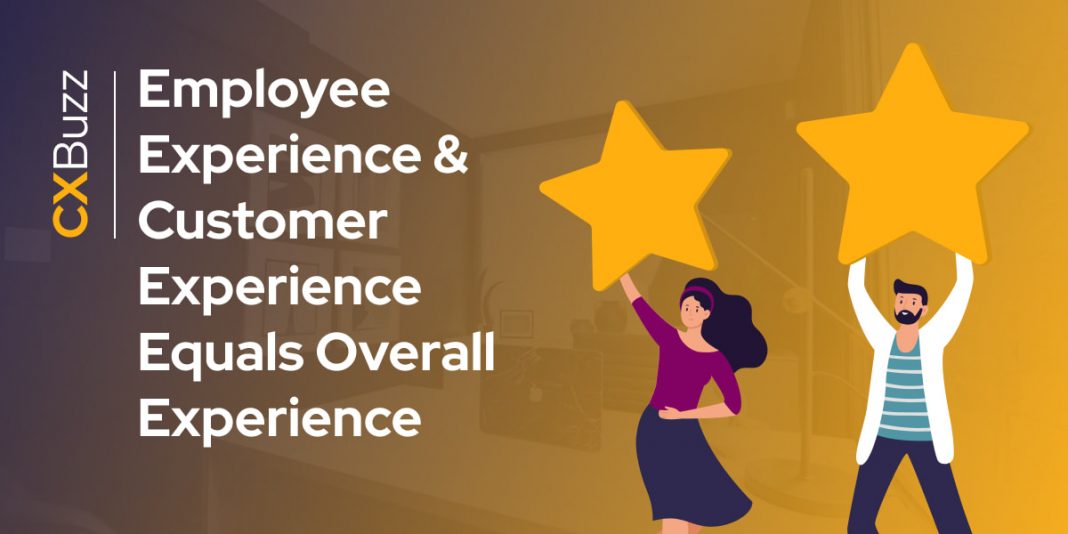Employee Experience & Customer Experience – Which One Came First?
The ultimate question of which came first, the chicken or egg, could be applied to the Customer Experience (CX) and Employee Experience (EX). Which one comes first?
According to the Tempkin Group study in 2017, 79% of employees with a customer-centric culture are highly or moderately engaged, compared with 49% of employees within organizations that are not aligned with CX. Compared to disengaged employees, highly engaged employees are 5.3 times more likely to make recommendations for continuous improvement and 4.7 more likely to do something good for the organization outside of their job description. Every organization is striving for operational excellence (OX) with united team members focused on achieving and exceeding financial goals.
From my professional experience, CX and EX go hand in hand. For years, I ran stores for Neiman Marcus, Marshall Field’s, and Lord & Taylor. The higher the employee engagement, the higher the CSAT score and the higher the financial results. My teams exceeded sales and profit targets with the highest scores in EX and CX, and no surprise, we achieved OX.
Employee engagement goes hand in hand with change management. Like everything else that is done in an organization, there needs to be a strategic plan in place to guide the change, you always need a map or GPS to get to where you are going. My methodology involves the 4 C’s. They are Communicate, Coach, Course Correct, and Celebrate. These steps will gain involvement and buy-in from the team.
Start with Communication. Share with the team the plan and what the goals are. For example, your company is diving into CX to build a strong, sustainable base of customers that leads to profitable revenue. Share your goals to increase CSAT, customer retention, and customer lifetime value, then your goals to increase revenue. This is like making an announcement; however, leadership needs to ensure a two-way flow of communication, that leads to Coaching.
Coaching & Employee Experience
When Coaching your teams, work with a bottom-up approach. Ask your teams what they want to do and how they can contribute to the customer’s experience. In some cases, this will be an indirect contribution, and every employee has a role in CX. With their ideas on how to drive CX in their division or department, you have a plan. Use this plan and coach your team members to do what they agreed to do, the leader is responsible for accountability of the team. When the team comes up with their own ideas and innovation on how to contribute, they now own the process.
It would be wonderful if everything we did, and all strategies worked perfectly and as intended. Practical business experience tells all of us that strategies need flexibility and adaptability to change circumstances. Sometimes parts of the strategy just do not work. In either of these cases, Course Correct to get back on track.
Benchmarks & Improved CX
The last step of celebrating is so important. Set benchmarks along the way to the all-encompassing goal and celebrate them. Communication and coaching are key components of this, and having smaller celebrations leads to the big celebration of success with an engaged team and improved CX. Sharing progress is key, then coaching to the next steps makes the difference. The team is involved with this, they have incentives set in place with the smaller steps of celebration. They are now inspired to make a difference and lead to the bonus C, CONNECTED. Your team is aligned to succeed together.
Note that there is not any discussion of wages or financial incentives, this could be part of the plan, however, the team member is striving for improved CX and OX because they are engaged. According to Gallup in their global January 2021 study, only 15% of team members are engaged, thus there is a substantial opportunity here. Further, the research at Gallup concluded that companies with engaged team members were 21% more profitable.
Conclusion
All CX experts will agree that EX is imperative to build a customer-centric culture and drive customer lifetime value, retention, market share, wallet share, and many other financial measures. EX lowers costs, direct costs as customer retention improves, customer acquisition costs go down. The other significant cost that it lowers is the cost of turnover. Going through the search/hire/onboard process is expensive and lowering this cost will drive the bottom line upward. Further, productivity improves, and the team members are more effective and efficient in their roles. Innovation improves as the organization is aligned toward common goals and objectives. Congratulations, you have OX.






